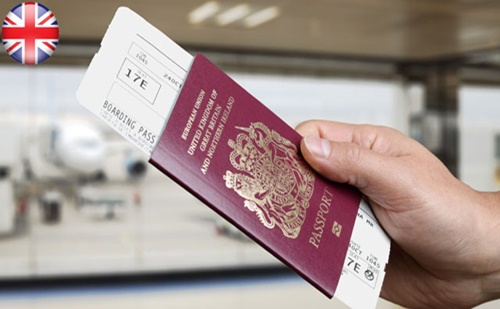How Do I Get Job In Canada
Canada, renowned for its high quality of life, diverse culture, and robust economy, stands as an attractive destination for individuals seeking career opportunities. However, navigating the Canadian job market can be daunting, especially for newcomers unfamiliar with its nuances. This comprehensive guide aims to demystify the process of securing employment in Canada, offering valuable insights and actionable tips to help you embark on a successful job search journey.
What is the Canadian Job Market?
Before delving into the specifics of finding a job in Canada, it’s essential to grasp the dynamics of its job market. Canada boasts a diverse economy, with thriving sectors such as technology, healthcare, finance, and natural resources. The labor market is influenced by various factors, including economic conditions, industry trends, and regional disparities.
Key Factors Influencing the Canadian Job Market
- Economic Trends: Canada’s economy experiences fluctuations influenced by global events, domestic policies, and industry developments. Understanding these trends can help job seekers target sectors with high demand for skilled workers.
- Regional Variances: Job opportunities may vary significantly across different provinces and territories due to factors like population density, economic specialization, and local demand-supply dynamics.
- Skills in Demand: Certain occupations experience shortages of skilled workers in Canada, leading to increased demand and competitive salaries. Keeping abreast of the in-demand skills can enhance your job prospects.
- Immigration Policies: Canada’s immigration system plays a crucial role in shaping its labor force. Skilled workers, students, and entrepreneurs often leverage immigration pathways to secure employment and contribute to the Canadian economy.
Navigating the Job Search Process
Securing a job in Canada requires a strategic approach encompassing various stages, from researching potential employers to acing job interviews. Let’s explore each step in detail:
-
Research and Networking
- Identify Target Industries: Research industries experiencing growth and demand for your skills. Explore sectors aligned with your interests, qualifications, and career goals.
- Network Effectively: Leverage professional networking platforms, industry events, and informational interviews to connect with professionals in your field. Building relationships can uncover hidden job opportunities and provide valuable insights.
-
Tailoring Your Resume and Cover Letter
- Customize Your Documents: Tailor your resume and cover letter to align with the job requirements and company culture. Highlight relevant skills, experiences, and achievements that demonstrate your suitability for the role.
- Showcase Transferable Skills: Emphasize transferable skills such as communication, problem-solving, and adaptability, which are valued by Canadian employers across industries.
-
Job Search Strategies
- Online Job Portals: Utilize popular job search websites like Indeed, LinkedIn, and Glassdoor to explore job listings, set up job alerts, and research potential employers.
- Company Websites: Directly visit the career pages of companies you’re interested in to explore job openings and submit tailored applications. Many companies prefer candidates who apply through their official channels.
-
Understanding the Application Process
- Work Authorization: Ensure compliance with Canadian work authorization requirements, which may vary based on factors such as your country of origin, immigration status, and the type of job you’re seeking.
- Application Deadlines: Pay attention to application deadlines and submission instructions outlined in job postings to avoid missing opportunities or submitting incomplete applications.
-
Preparing for Interviews
- Research the Company: Familiarize yourself with the company’s products, services, mission, and values. Demonstrate your interest and enthusiasm during interviews by showcasing your knowledge.
- Practice Interview Questions: Prepare responses to common interview questions, emphasizing your skills, experiences, and alignment with the job requirements. Conduct mock interviews to refine your communication and presentation skills.
-
Leveraging Additional Resources
- Career Development Centers: Seek assistance from career development centers, immigrant-serving organizations, and employment agencies offering job search support, resume writing workshops, and interview preparation sessions.
- Professional Certification: Consider obtaining relevant professional certifications or upgrading your skills through online courses, workshops, or vocational training programs to enhance your marketability.
Navigating Immigration and Work Authorization
For international job seekers, navigating Canada’s immigration system and obtaining the necessary work authorization is a critical aspect of securing employment. Several pathways exist for skilled workers, including:
- Express Entry System: The Express Entry system facilitates the immigration of skilled workers through federal economic immigration programs, namely the Federal Skilled Worker Program (FSWP), Federal Skilled Trades Program (FSTP), and Canadian Experience Class (CEC).
- Provincial Nominee Programs (PNPs): Many provinces and territories in Canada operate PNPs designed to address specific labor market needs and attract skilled workers to their regions. Each PNP has its eligibility criteria and application process.
- Temporary Work Permits: International job seekers may also obtain temporary work permits to work in Canada for a specified period, either through employer-specific job offers, international agreements (e.g., NAFTA), or open work permits for spouses and common-law partners of skilled workers or students.
- International Experience Canada (IEC): The IEC program allows young adults from participating countries to gain valuable work experience in Canada through three categories: Working Holiday, Young Professionals, and International Co-op (Internship).
It’s crucial to thoroughly research the eligibility requirements, application procedures, and processing times for the immigration pathways relevant to your situation. Seeking guidance from immigration consultants or legal professionals can provide clarity and ensure compliance with immigration regulations.
Securing a job in Canada requires a combination of strategic planning, effective networking, and a proactive approach to the job search process. By understanding the dynamics of the Canadian job market, tailoring your applications, and leveraging available resources, you can increase your chances of success in finding meaningful employment. Additionally, navigating Canada’s immigration system and obtaining the necessary work authorization are integral steps for international job seekers seeking to build a career in the Great White North. With persistence, resilience, and a commitment to continuous learning and improvement, you can embark on a rewarding professional journey in Canada.








